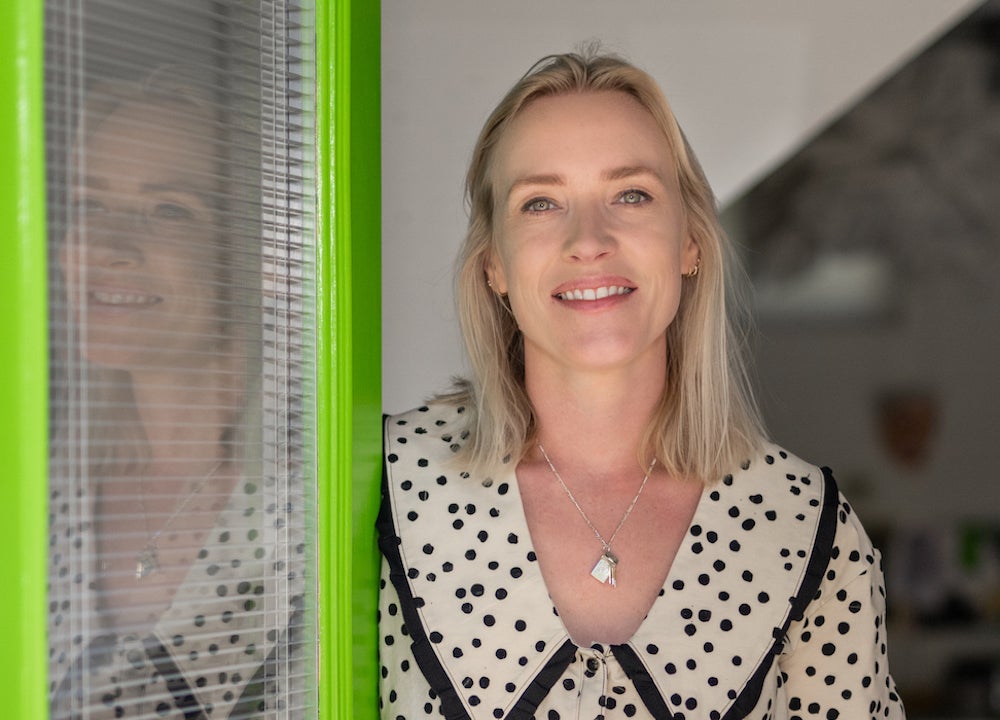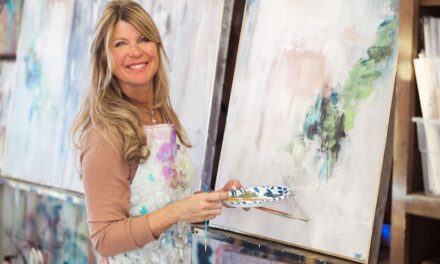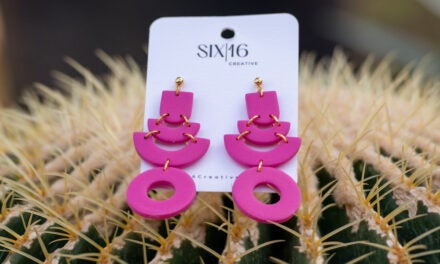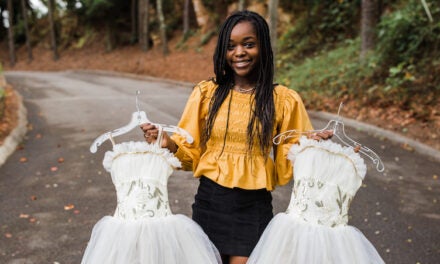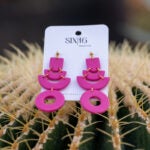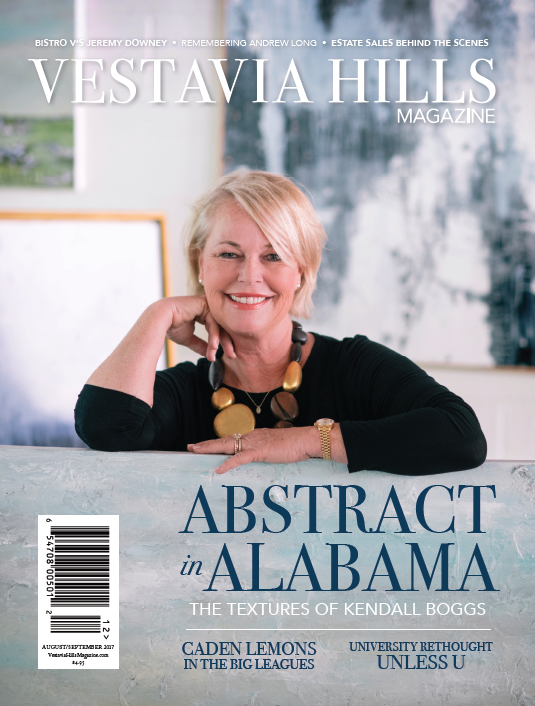By Lauren Dowdle
Photos by Blair Ramsey
When people visit Julie Maeseele’s Cahaba Heights studio, they won’t feel like they’ve stumbled into a department store—and that’s exactly how this fashion designer wants it.
Within an industry that often focuses more on quantity than quality, Julie strives to shift the spotlight back to the heart of each garment. She encourages people to reconnect with the clothing they have and invest in quality pieces that will last for longer.
Instead of being viewed as a disposable afterthought, clothes should live alongside the consumer, Julie says. That dedication to quality is evident in each of the garments she creates, something residents can see on her website and if they visit her studio.
Though Julie continues to positively impact the Vestavia Hills community and beyond, she got her start more than 4,000 miles away. As a child growing up in Belgium, Julie says she dreamed about one day becoming a fashion designer. However, when it came time to choose what she would study, she felt intimidated by the industry and backed out of pursuing fashion.
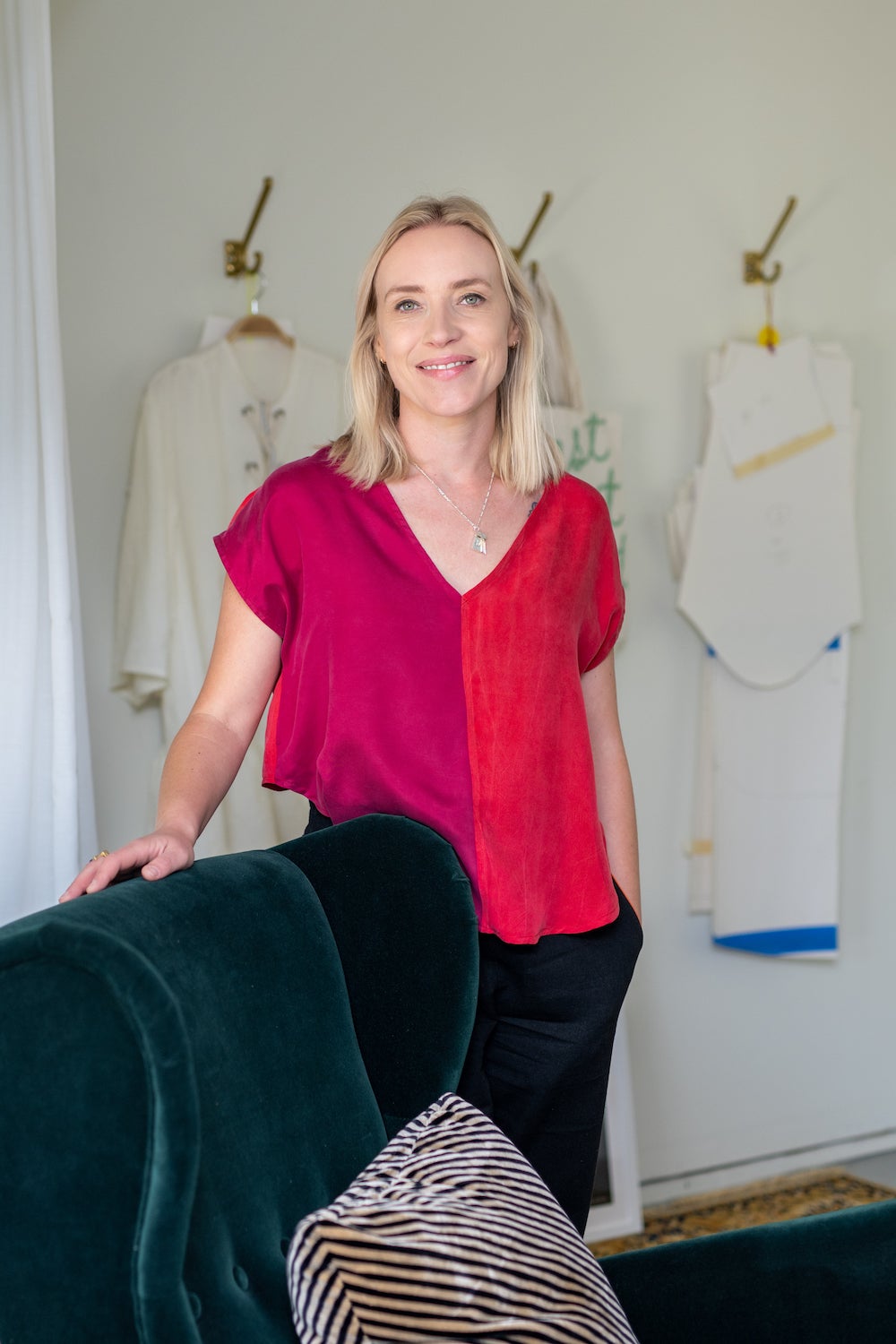
She ended up earning a master’s degree in the fine arts focusing on textile design and went on to work with Muslim women for a nonprofit organization. She was exposed to a variety of cultural textile heritage, she says, which helped her realize the power fashion has to communicate interests, beliefs and morals.
“I made installations, experimented with different techniques and my main goal was always to ‘touch’ people with my work,” Julie says. “I wanted to tell a story, evoke sentimental emotions, really speak to them. And to a certain degree, that is still what I want to achieve with my garments today.”
When her husband’s job brought them to the United States nearly a decade ago, Julie saw the move as an opportunity to pursue her love for fashion. She began learning more about the area she now called home, which is how she discovered Birmingham Fashion Week (BFW).
With the goal of being a featured designer in the event, Julie actually won the emerging designer competition in the 2016 BFW, which was organized by Heidi Elnora, but that was only the beginning of what was to come.
Julie continued gaining experience to hone her skills by interning with Manuel Cuevas in Nashville, Tennessee. Known as the Rhinestone Rembrandt, Manuel designed pieces for celebrities like James Dean, Johnny Cash and Lady Gaga. Being exposed to his dedication to craftsmanship is what encouraged Julie to make her own way in the fashion industry, she says.
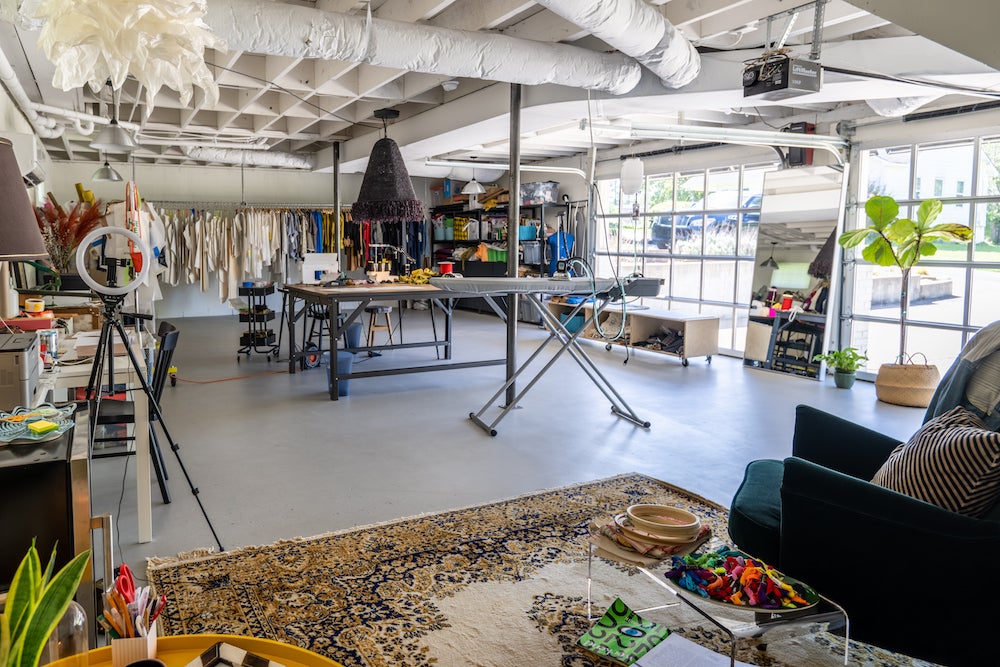
With that inspiration and years of training under her belt, Julie transformed her passion for creating quality garments into a business based out of her Cahaba Heights home. Her open, modern studio is as chic as the clothes hanging alongside the wall.
Inspired by European minimalism and vintage Western wear, Julie says she’s always been interested in the timeless—yet modern—style of Western shirts with a lot of piping details. From classic Western shirts to scarves and cropped fringe jackets, her garments have a distinct style.
Each piece is hand-cut and machine-sewn, seamlessly combining old and new techniques with a contemporary attitude, she says.
“Garments can be seen as ‘soft sculptures,’ and they should be fascinating to look at,” Julie says.
This mom of three crafts pieces for women with clean lines and bold designs—perfect for a range of occasions. She uses surplus fabric and recycled materials for her garments, aiming to reduce the amount of waste to create sustainable pieces that will last for years to come.
The one-woman show occasionally works with freelance artists for collaborations and branding. Each piece has “Made in Alabama” on the tag, along with the name of the person who sewed the piece.
“I chose to serve my community but also have made garments for people all over the country,” she says.
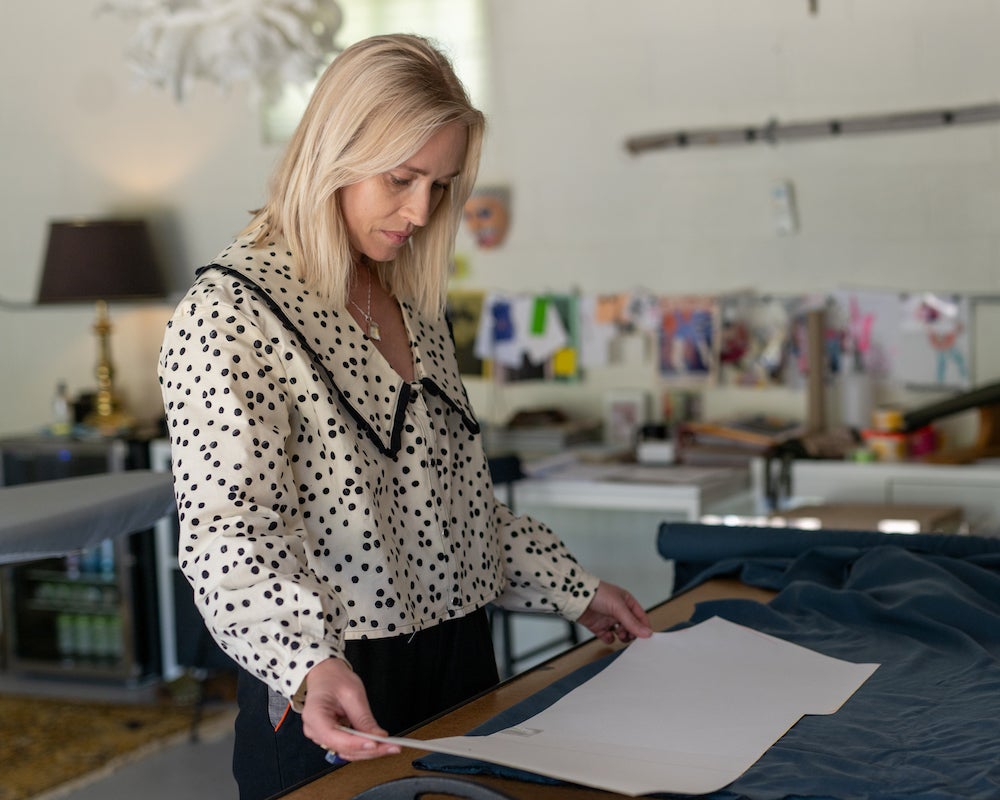
Customers can buy one-of-a-kind or limited-edition garments off of the rack. They can get an existing style custom-made for them by choosing a different fabric, adjusting the size or other minor details, Julie says.
“Once they have found a style they like, they usually come back for another version of it,” she says.
Whether she’s dreaming up a new design or sitting at the sewing machine in her home studio, Julie pours her creativity, experiences and skills into each thoughtful garment.
“Fashion has the power to communicate heritage, culture and history, and it is an important tool to express our interests, morals and beliefs to one another,” Julie says. “I think that fashion is incredibly fascinating.”
To view and shop her clothing, workshops or to learn more about her story, visit juliemaeseele.com. Julie’s garments can also be found at A Basic Shop in downtown Birmingham.
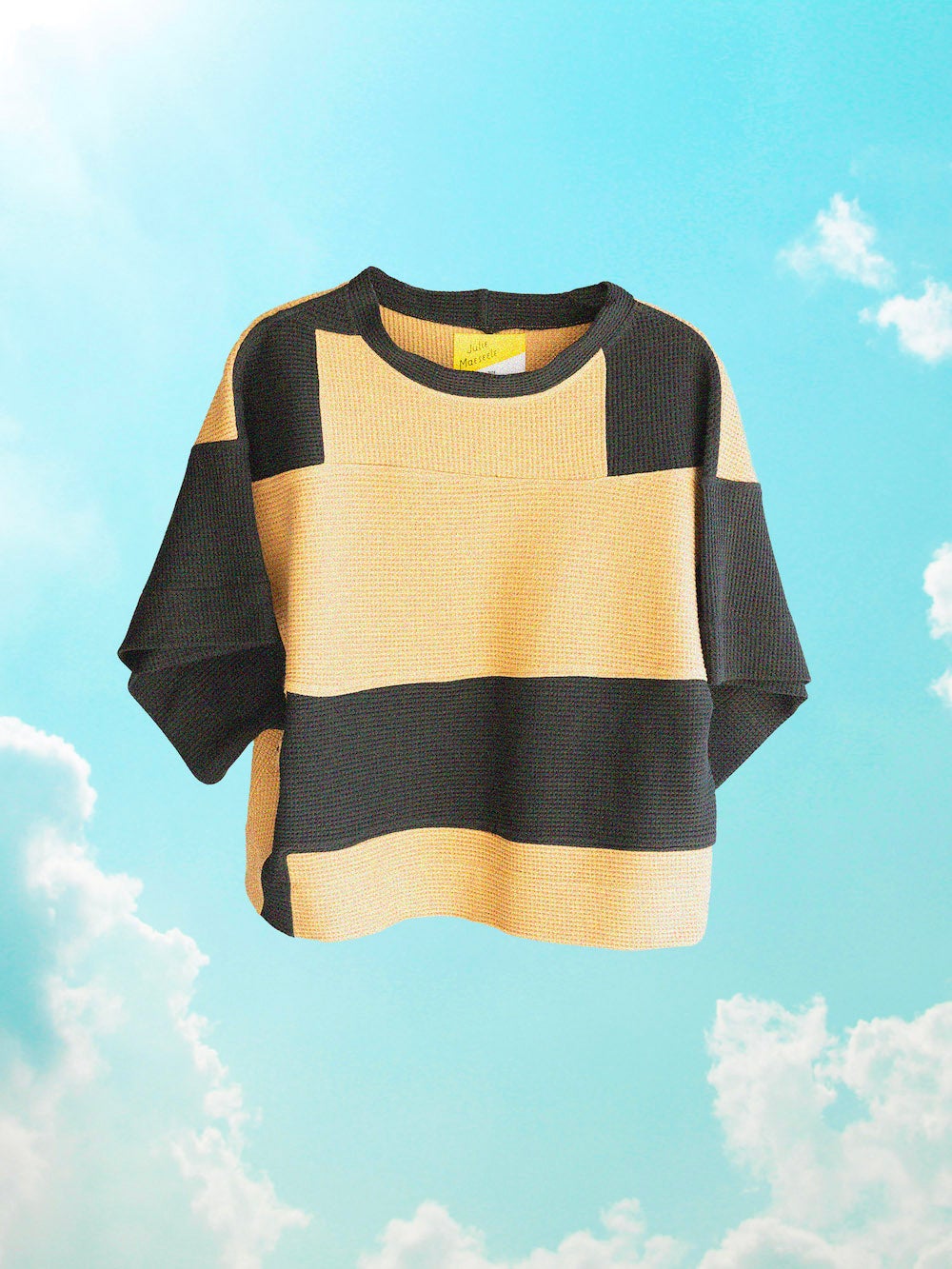
Memorable Pieces
Styles constantly evolve, as does the standout clothing in Julie Maeseele’s collection. Each of the garments hanging in her studio is stunning, but some have especially caught her eye recently.
One of Julie’s favorite pieces she’s worked on is a zero-waste crop top made with surplus waffle knit cotton from Alabama Chanin. The handmade, relaxed-fit tops come in a variety of patterns and are the perfect statement piece for any occasion.
“Every top is different like a piece of abstract art,” Julie says.
She also has a series of unique corsets for the spring and summer that can be worn as a top or layered with a T-shirt. Some of them have custom embroidery details to really set them apart and tie into her love for Western wear.
Her bestselling item has been the linen pant suit, which comes in black or white with piping details. Customers can find the pattern for those pants on her workshop page, along with an online sewing course on how to create the garment. She also offers in-person sewing classes at her studio to create pieces like linen joggers, which participates can take home with them.

